around the time of thecircumnavigation thejayfather was a busy boy. the weekend after that journey was the school trip to, among other places, the geographical center of the island. so over the course of two weekends i really felt like i saw it all.
on Saturday the 9th we left the school and headed to a little town called either Chichi or Jiji, depending on which sign you were looking at. Chinese Romanizations never seem to work out quite right, but if you can cross these two names, you pretty much have the sound. it seemed as if the whole purpose of this town was to rent very small motorcycles, which we did, along with every Taiwanese person who was there. it's a very strange concept that they have: they figure it would be fun to have some of these little bikes for the tourists, and then instead of getting them in other tourist towns, everybody opens a mini-bike shop right in Jiji, and you can't find them anywhere else.

those westerners don't half ride funny...
at least we got some of the bikes, and we discovered how much fun they could be, finding an open area of blacktop on which to race and do all kinds of other stunts, as shown. the trouble was, we were riding them so hard on the blacktop that when we finally went out to see the mountain sights, the batteries on two of our machines died and we had to tow them all the way back to the shop in town. my arm still hurts.

and don't we know it. this is much harder than it looks, by the way
we went up to some campsite seemingly in the middle of nowhere after that, but i assume it was somewhere in Nantou, or at least Nantou County. we were there for a disproportionate amount of time, mostly sitting around getting eaten by bugs after our barbecue, but our accommodations were nice. like little condos complete with TV and AC, and one of the most spacious bathrooms i've ever seen. actually bathrooms are one thing you have little cause to complain about here. apparently, according to the rules of geomancy, or Feng Shui, as it is more trendily known in the states, it is important to have a large bathroom and the smallest kitchen imaginable. if you can just about turn around once you get in the kitchen, that is admirable, but probably an indicator that the room is still too big. this is directly opposite to the Western way, where the kitchen is usually the most important room in the house, and rightly so, though i certainly like the big bathroom. but it does have its drawbacks. few are the bathrooms in this or any other Southeast Asian country that sport our common or garden variety commode; rather, the potty of choice is a squatty, and i'll leave the specifics of that to your imagination, and perhaps a picture. it's said that this variety of toilet is better for the bowels, but let me assure you it does nothing for the legs. add to this the need to place toilet paper in a trashcan, rather than flushing it, and you end up with a thoroughly miserable experience, which in turn makes all that extra space quite useless. why put a library somewhere you would never be able to enjoy it?

welcome to my world. you'll be sharing your most intimate moments with this contraption for the next six months
anyway the next day we headed out to Puli, the geographical center of Ilha Formosa, to go to the Formosan Aboriginal Culture Village. sounds as if it's a bit like the Polynesian Cultural Center in Hawaii, right? wrong. it's like a second-rate Disneyland with some wax models of aboriginal Taiwanese. at the PCC you have real live Polynesian and Melanesian people walking around talking to you about their culture, and showing it to you with various performances. there were a few--a very few--performances at the FACV, but most of the time it was unclear what was going on. and, in the tribal villages, there really were just wax models of aboriginal people. most visitors seemed much more interested in the numerous food stands than they were in any kind of culture anyway, so i'm sure they didn't mind.

the entrance to the Formosan Aboriginal Culture Village
anyway the rides were pretty okay, and i had another funny experience with a ride operator which further demonstrated the Taiwanese mindset. we were getting on the ride that has you sit in a chair which faces outward from a huge tower, the thrill being that the chair is hoisted to the top of the tower and then dropped. we put our bags and loose articles in the bins provided and climbed aboard, but as the attendant came to check our safety belts, she motioned for me to take off my glasses and give them to her. having cost more than her scooter, i was not about to hand over my high custom eyewear, so i smiled and made the "okay" symbol, and thought that she would respect my sovereignty over my own possessions. no such luck. she kept after it, trying to tell me they would fly off, me telling her they wouldn't. then she walked off and i thought for a fleeting moment that she would start the ride, but she just brought the other attendant over to try her hand at persuading me. i finally realized that they really wouldn't start the ride until i had capitulated, but i wasn't about to go up sightless, so i motioned that i would put them in my pocket, which seemed to satisfy them. when i put them on again, just after lifting from the ground, i knew i wouldn't be able to ride this ride again; indeed, both attendants were looking at me sternly when we came down. but they were looking at me because i had my glasses on, still, and enduring their silent wrath was worth being able to see the view from the top.
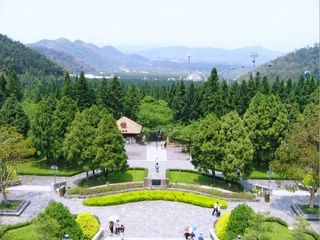
the view from the top. note the fun space needle at the bottom of the park (middle of the picture)
the views made the trip to the park worthwhile. it is set on a long hill overlooking some pretty spectacular countryside, and they have some aboriginal buildings at the top of the hill which go up about four stories and so give a good platform for pictures.
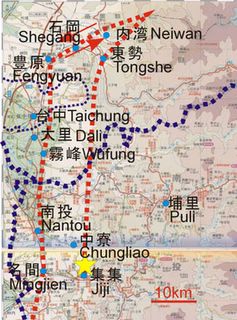
though this map is marked for some obscure Feng Shui purpose, it's the only map i could find that shows the relative locations of the places on this trip
the next place we went was pretty good for pictures as well. maybe too good. the Chung Tai Chan Monastery in Puli is one of the biggest buildings i have ever seen, certainly for religious purposes. some say it's the largest religious building in the world. it is home to who knows how many monks and nuns, but judging by the size, quite a lot. actually i know very little about this place, the website is all in Chinese. but most of the links on the left hand side seem to go to pictures, in case you want to get a better feel for the scale of this thing.
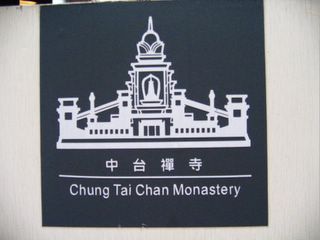
a handy schematic of the so-called Chung Tai Chan Monastery, and a view of the behemoth

Chung Tai Chan is a Buddhist monastery, this much i do know, and many of the Buddha statues are quite impressive. though i really can't understand the draw of Buddhism, there is a certain appeal to the notion of becoming a perfectly enlightened fat guy and sitting around all jolly-like forever.
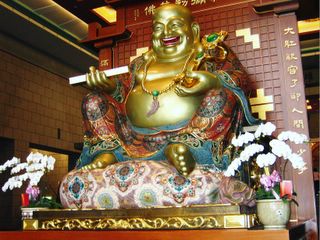
who wouldn't want to be a Buddha, really?
maybe there's more to it than that, and i guess that many millions of people the world over derive some comfort from the promise of release from their miserable mortality. they certainly seem fervent in their prayers, often to quite beautiful effect. their shambalistic chantings inside the monastery made the perfect background to this impressive display of prayer ribbons:
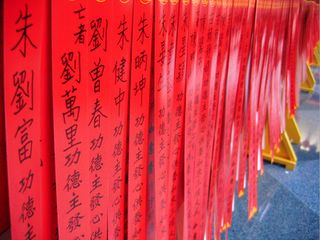
prayer ribbons hanging outside the Chung Tai Chan Monastery in Puli
finally, after far too many hours on the chartered karaoke bus (oh yes, they really do have these, and people really do sing the entire time the bus is moving) they took us to Puli's wine making factory. they do other things there, and we did have some awfully good fruit popsicles, but the reason this place is an attraction, at least for the non-drinking Mormons, is that it showcases some of the devastation of the 9-21 earthquake of 1999. Puli was very close to the epicenter of Taiwan's most powerful quake of recent times, and so was greatly damaged. in a memorable visual demonstration of nature's power they showed a huge distilling vat that had been crushed like a tin can by an enormous concrete beam from the old factory. then, as if to demonstrate its caprice, they showed hundreds of the old-style ceramic storage vessels that had apparently gone unharmed by the quake.
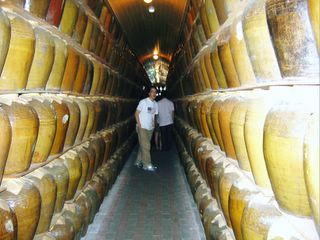
twinkle twinkle little shoes. i thought i'd shed some light on this scene
of course, my take on the moral of the story may be way off the mark--it was all in Chinese after all.
on Saturday the 9th we left the school and headed to a little town called either Chichi or Jiji, depending on which sign you were looking at. Chinese Romanizations never seem to work out quite right, but if you can cross these two names, you pretty much have the sound. it seemed as if the whole purpose of this town was to rent very small motorcycles, which we did, along with every Taiwanese person who was there. it's a very strange concept that they have: they figure it would be fun to have some of these little bikes for the tourists, and then instead of getting them in other tourist towns, everybody opens a mini-bike shop right in Jiji, and you can't find them anywhere else.

those westerners don't half ride funny...
at least we got some of the bikes, and we discovered how much fun they could be, finding an open area of blacktop on which to race and do all kinds of other stunts, as shown. the trouble was, we were riding them so hard on the blacktop that when we finally went out to see the mountain sights, the batteries on two of our machines died and we had to tow them all the way back to the shop in town. my arm still hurts.

and don't we know it. this is much harder than it looks, by the way
we went up to some campsite seemingly in the middle of nowhere after that, but i assume it was somewhere in Nantou, or at least Nantou County. we were there for a disproportionate amount of time, mostly sitting around getting eaten by bugs after our barbecue, but our accommodations were nice. like little condos complete with TV and AC, and one of the most spacious bathrooms i've ever seen. actually bathrooms are one thing you have little cause to complain about here. apparently, according to the rules of geomancy, or Feng Shui, as it is more trendily known in the states, it is important to have a large bathroom and the smallest kitchen imaginable. if you can just about turn around once you get in the kitchen, that is admirable, but probably an indicator that the room is still too big. this is directly opposite to the Western way, where the kitchen is usually the most important room in the house, and rightly so, though i certainly like the big bathroom. but it does have its drawbacks. few are the bathrooms in this or any other Southeast Asian country that sport our common or garden variety commode; rather, the potty of choice is a squatty, and i'll leave the specifics of that to your imagination, and perhaps a picture. it's said that this variety of toilet is better for the bowels, but let me assure you it does nothing for the legs. add to this the need to place toilet paper in a trashcan, rather than flushing it, and you end up with a thoroughly miserable experience, which in turn makes all that extra space quite useless. why put a library somewhere you would never be able to enjoy it?

welcome to my world. you'll be sharing your most intimate moments with this contraption for the next six months
anyway the next day we headed out to Puli, the geographical center of Ilha Formosa, to go to the Formosan Aboriginal Culture Village. sounds as if it's a bit like the Polynesian Cultural Center in Hawaii, right? wrong. it's like a second-rate Disneyland with some wax models of aboriginal Taiwanese. at the PCC you have real live Polynesian and Melanesian people walking around talking to you about their culture, and showing it to you with various performances. there were a few--a very few--performances at the FACV, but most of the time it was unclear what was going on. and, in the tribal villages, there really were just wax models of aboriginal people. most visitors seemed much more interested in the numerous food stands than they were in any kind of culture anyway, so i'm sure they didn't mind.

the entrance to the Formosan Aboriginal Culture Village
anyway the rides were pretty okay, and i had another funny experience with a ride operator which further demonstrated the Taiwanese mindset. we were getting on the ride that has you sit in a chair which faces outward from a huge tower, the thrill being that the chair is hoisted to the top of the tower and then dropped. we put our bags and loose articles in the bins provided and climbed aboard, but as the attendant came to check our safety belts, she motioned for me to take off my glasses and give them to her. having cost more than her scooter, i was not about to hand over my high custom eyewear, so i smiled and made the "okay" symbol, and thought that she would respect my sovereignty over my own possessions. no such luck. she kept after it, trying to tell me they would fly off, me telling her they wouldn't. then she walked off and i thought for a fleeting moment that she would start the ride, but she just brought the other attendant over to try her hand at persuading me. i finally realized that they really wouldn't start the ride until i had capitulated, but i wasn't about to go up sightless, so i motioned that i would put them in my pocket, which seemed to satisfy them. when i put them on again, just after lifting from the ground, i knew i wouldn't be able to ride this ride again; indeed, both attendants were looking at me sternly when we came down. but they were looking at me because i had my glasses on, still, and enduring their silent wrath was worth being able to see the view from the top.

the view from the top. note the fun space needle at the bottom of the park (middle of the picture)
the views made the trip to the park worthwhile. it is set on a long hill overlooking some pretty spectacular countryside, and they have some aboriginal buildings at the top of the hill which go up about four stories and so give a good platform for pictures.

though this map is marked for some obscure Feng Shui purpose, it's the only map i could find that shows the relative locations of the places on this trip
the next place we went was pretty good for pictures as well. maybe too good. the Chung Tai Chan Monastery in Puli is one of the biggest buildings i have ever seen, certainly for religious purposes. some say it's the largest religious building in the world. it is home to who knows how many monks and nuns, but judging by the size, quite a lot. actually i know very little about this place, the website is all in Chinese. but most of the links on the left hand side seem to go to pictures, in case you want to get a better feel for the scale of this thing.

a handy schematic of the so-called Chung Tai Chan Monastery, and a view of the behemoth

Chung Tai Chan is a Buddhist monastery, this much i do know, and many of the Buddha statues are quite impressive. though i really can't understand the draw of Buddhism, there is a certain appeal to the notion of becoming a perfectly enlightened fat guy and sitting around all jolly-like forever.

who wouldn't want to be a Buddha, really?
maybe there's more to it than that, and i guess that many millions of people the world over derive some comfort from the promise of release from their miserable mortality. they certainly seem fervent in their prayers, often to quite beautiful effect. their shambalistic chantings inside the monastery made the perfect background to this impressive display of prayer ribbons:

prayer ribbons hanging outside the Chung Tai Chan Monastery in Puli
finally, after far too many hours on the chartered karaoke bus (oh yes, they really do have these, and people really do sing the entire time the bus is moving) they took us to Puli's wine making factory. they do other things there, and we did have some awfully good fruit popsicles, but the reason this place is an attraction, at least for the non-drinking Mormons, is that it showcases some of the devastation of the 9-21 earthquake of 1999. Puli was very close to the epicenter of Taiwan's most powerful quake of recent times, and so was greatly damaged. in a memorable visual demonstration of nature's power they showed a huge distilling vat that had been crushed like a tin can by an enormous concrete beam from the old factory. then, as if to demonstrate its caprice, they showed hundreds of the old-style ceramic storage vessels that had apparently gone unharmed by the quake.

twinkle twinkle little shoes. i thought i'd shed some light on this scene
of course, my take on the moral of the story may be way off the mark--it was all in Chinese after all.





































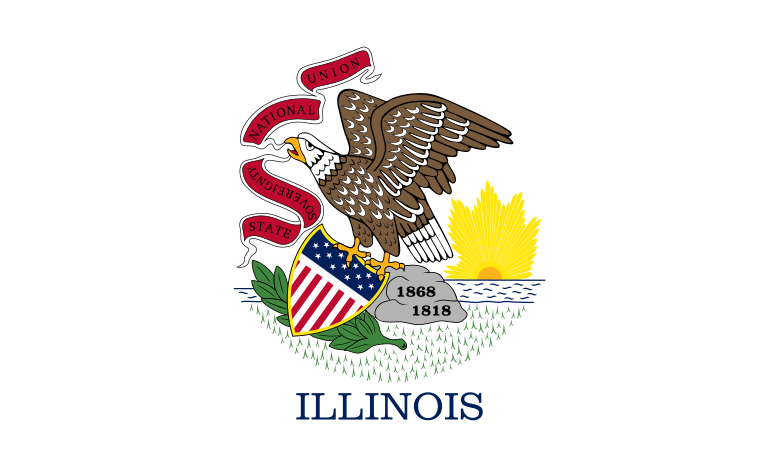




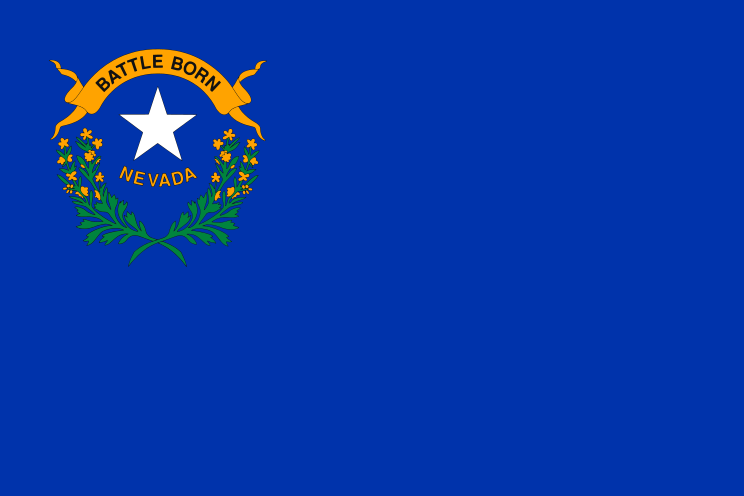




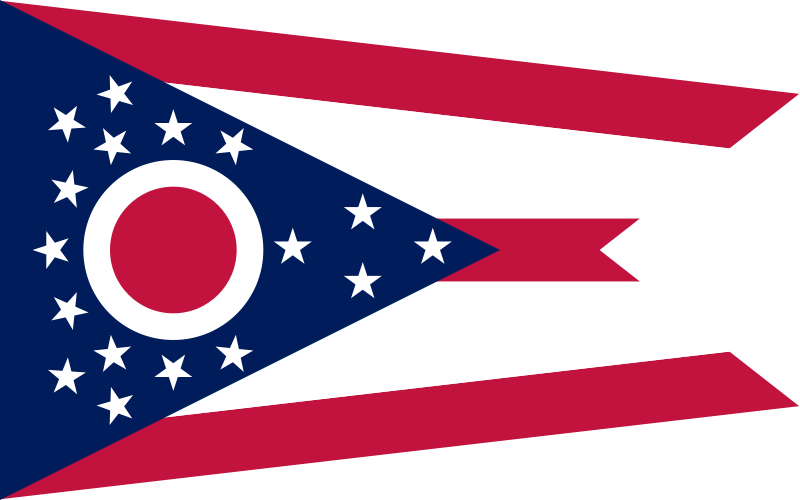







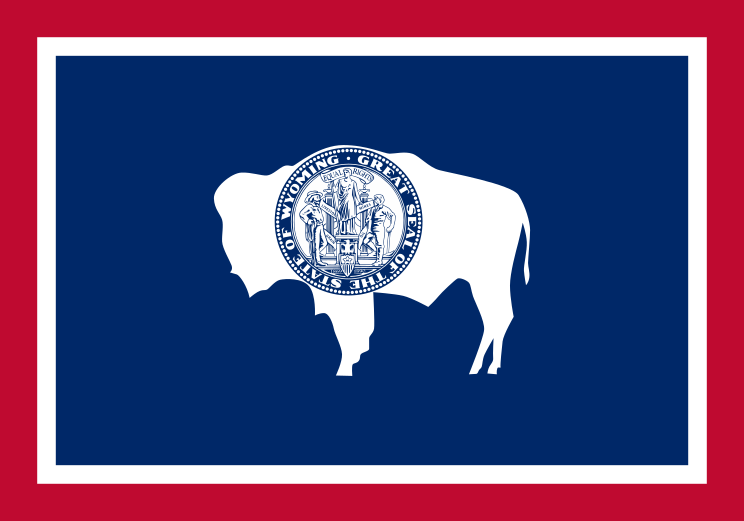
No comments:
Post a Comment